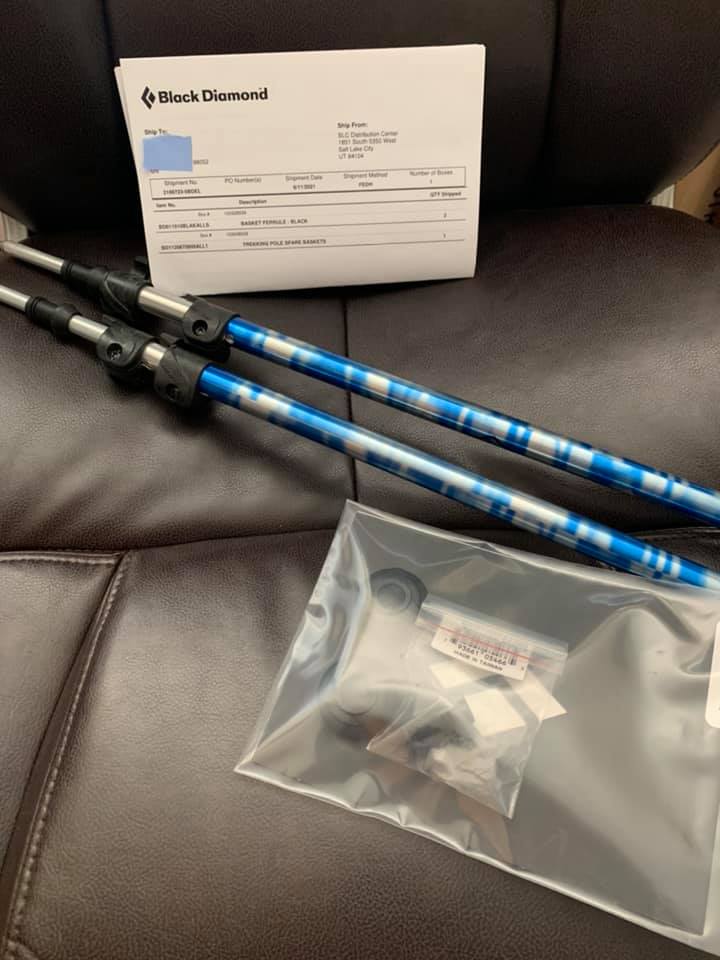
What happens when it is time to return to work?
Not everyone with Autoimmune Disease, allergies, or chronic illness experiences a lengthy period of FMLA or unemployment due to their health issues.
However, some of us go through significant life changes, such as new baby, a move to another state, or even a change of employment that can bring up new issues and concerns surrounding how you take care of yourself while you are on the clock.
Additionally, changes in our medical concerns and challenges aggravated by stress and reduced time for self-care activities, a change in income and cash flow (pandemic, tax burden, access to healthcare during the pandemic, change of health insurance company and coverage), and childcare or elder care responsibilities also affect our health. These play into overall concerns for returning to the workplace.
With many people returning to work outside of their homes after a lengthy WFH, and others evaluating their essential worker job as it transitions into post-pandemic “norms” in the U.S., I wrote this post as a basic primer of concerns about working outside of the home.
The following are just a few of the concerns that I have observed in the lives of others who live with ongoing health issues related to Autoimmune Disease, allergies, and chronic illness. Some of them may be very familiar to you; others might raise some new questions that you might not have known to ask. Note: my information is about conditions in the United States, which may vary dramatically in other parts of the world. Please refer to your local state or national laws regarding workplace rights.
Do You Have a Right to a Fragrance-Free Environment?
Is having clean air free from perfumes, fragrances, and chemicals a workplace right?
I discovered in the city of Seattle that it is a right (296-800 WAC). The building I once worked in had installed heavily-fragrance air fresheners in the bathrooms overnight which triggered an asthma attack the next morning when I entered the restroom. After citing the above WAC regulation, the fresheners were promptly removed. It probably helped that the building was full of lawyers who were more than eager to help me get these removed! However, in normal circumstances, getting an employer and a building owner to comply with laws and accommodations can be a bit more complicated than citing a state’s administrative code.
If you do a search on the Internet for legal cases in the U.S. where an employee sought an ADA accommodation due to chemical sensitivities such as fragrances, there is good and bad news. If you have an employer with a robust HR that is willing to listen to the problems you experience with breathing due to a chemical sensitivity, there are a number of accommodations that could be made available to you. These include a separate office with an air purifier, moving your office to an area away from others, and remote office work.
According to AskJan on the subject of fragrance sensitivities, accommodation comes in three main forms: 1) Remove the offending chemical, 2) Move the employee away from the chemical source, 3) Reduce the exposure of the employee to the chemical (such as removing the employee to a private office with proper ventilation, or suggesting a respirator).
Yet I noticed that the one of the options wasn’t offered: signage that states fragrance wearing (including scented lotions, deodorant, cologne, and perfume) is prohibited. The only time I’ve personally encountered signage that makes it clear that all people who enter the area need to be fragrance free is in a healthcare setting, and usually it is limited to Oncology and Surgery.
It is not a popular option to ask for signage that declares an area strictly fragrance free. Yet for those of us with chemical sensitivities, we often yearn for it. I cannot tell you how many activities and events were utterly ruined by the person who unknowingly walked into my personal space wearing heavy cologne, perfume, or the scent of cigarettes.
ADA Compliancy and Disability: What is a Reasonable Accommodation?
The ADA (American Disabilities Act) outlines what is considered a disability and what kinds of accommodations are required by large and small employers, covering hiring practices that are free of discrimination, to accommodation that should be made available when an employee has a known disability or develops one over the course of time.
The important word in the above statement is, “should.” Whether accommodation happens or not may also be related to how persistent you are as an employee to have those accommodations offered, protected, and executed routinely in order for you to work.
Under Title I of the Americans with Disabilities Act (ADA), a reasonable accommodation is a modification or adjustment to a job, the work environment, or the way things are usually done during the hiring process. These modifications enable an individual with a disability to have an equal opportunity not only to get a job, but successfully perform their job tasks to the same extent as people without disabilities. The ADA requires reasonable accommodations as they relate to three aspects of employment: 1) ensuring equal opportunity in the application process; 2) enabling a qualified individual with a disability to perform the essential functions of a job; and 3) making it possible for an employee with a disability to enjoy equal benefits and privileges of employment.
https://www.dol.gov/agencies/odep/program-areas/employers/accommodations
Sometimes getting a reasonable accommodation doesn’t follow the “should.” You may need to not only advocate for yourself, but be prepared to show documentation of your disability (including a medical or psychiatric history, signed by a licensed professional) along with what remedies fit a description of a reasonable accommodation.
Here is an example: a large corporation hosted a multi-day conference, of which food was provided on site for three meals a day plus snacks. Employees are expected to eat the food provided and remain on site so they would not miss important all-hands meetings and breakout sessions. However, employees who have food allergies, such as dairy and nuts and employees with medically-necessary diets such as gluten free run into problems accessing their food. From an outsider’s perspective, some feel the accommodation is reasonable, yet on further inspection, important details can be missed, such as identifying the people who can only eat from those lines to prevent others who do not need those accommodations from taking the special needs food away from those who have no other safe options
I recommend taking a look at the AskJAN employee guide on requesting and negotiating reasonable accommodations under the ADA. While it does not list every possible scenario of what qualifies, it should give you enough information to help you make an informed choice about how to go about contacting an employer if you have a disability and are seeking an accommodation. https://askjan.org/publications/individuals/employee-guide.cfm
FMLA: When and How to Apply
Over the past 20 years of being a counselor, I have helped clients apply for or renew FMLA request to their employers. While it can feel like a daunting task to apply for FMLA, if you arrive at a time and circumstance where FMLA is the best option for you, it is worth taking time to understand what it is and how it can help you.
The Family and Medical Leave Act (FMLA) provides certain employees with up to 12 weeks of unpaid, job-protected leave per year. It also requires that their health benefits be maintained during the leave.
The following information reproduced below can be found here:
https://www.dol.gov/general/topic/benefits-leave/fmla
“FMLA is designed to help employees balance their work and family responsibilities by allowing them to take reasonable unpaid leave for certain family and medical reasons. It also seeks to accommodate the legitimate interests of employers and promote equal employment opportunity for men and women.
FMLA applies to all public agencies, all public and private elementary and secondary schools, and companies with 50 or more employees. These employers must provide an eligible employee with up to 12 weeks of unpaid leave each year for any of the following reasons:
- For the birth and care of the newborn child of an employee;
- For placement with the employee of a child for adoption or foster care;
- To care for an immediate family member (i.e., spouse, child, or parent) with a serious health condition; or
- To take medical leave when the employee is unable to work because of a serious health condition.
Employees are eligible for leave if they have worked for their employer at least 12 months, at least 1,250 hours over the past 12 months, and work at a location where the company employs 50 or more employees within 75 miles. Whether an employee has worked the minimum 1,250 hours of service is determined according to FLSA principles for determining compensable hours or work.”
When you apply, you and your healthcare provider will fill out a form stating what situation is prompting the FMLA request and what amount of time will meet the request. For example, an employee may request one hour every week to receive behavioral health sessions with a licensed mental health counselor due to Generalized Anxiety; another employee may X many months for care related to the bereavement process of an elder who lost their spouse.
What It Is Like: Asking for Accommodations or Taking a Leave of Absence
Like most actions, the first time you do anything can be both exciting and daunting, empowering and potentially defeating or heavy.
When I filled out a form requesting an ADA accommodation for my workplace this year, I felt both a mixture of empowerment (“This is necessary and smart of me to request this so I can do the same work as anyone else”) and simultaneously a feeling of shame (“I hope only those who absolutely need to know about this will even be aware of it”).
Negotiating the exact accommodation that would work for my situation took a bit longer than I would have wanted for myself or for anyone else in my situation. There were different factors to keep in mind, and there was some back and forth about what was considered reasonable in comparison to what other employees enjoyed. In the end, I received word that the negotiations settled on something that both I and the employer agreed was fair.
At first, there was some awkwardness about the accommodation, but once in use, it did exactly what I hoped it would — it evened the work environment with minimal disturbance. It allowed me to effectively and efficiently keep to my job description. Another person in my position might not have found this accommodation acceptable. That is why negotiation for accommodation is complex and unique to each individual.
If you have ever sought ADA accommodation for a disability, chemical sensitivity, or for FMLA related to a medical condition, I would love to hear from you. In the comments, you can indicate anonymous posting and make references to medical conditions vague enough to keep the changes of identifying you low.




